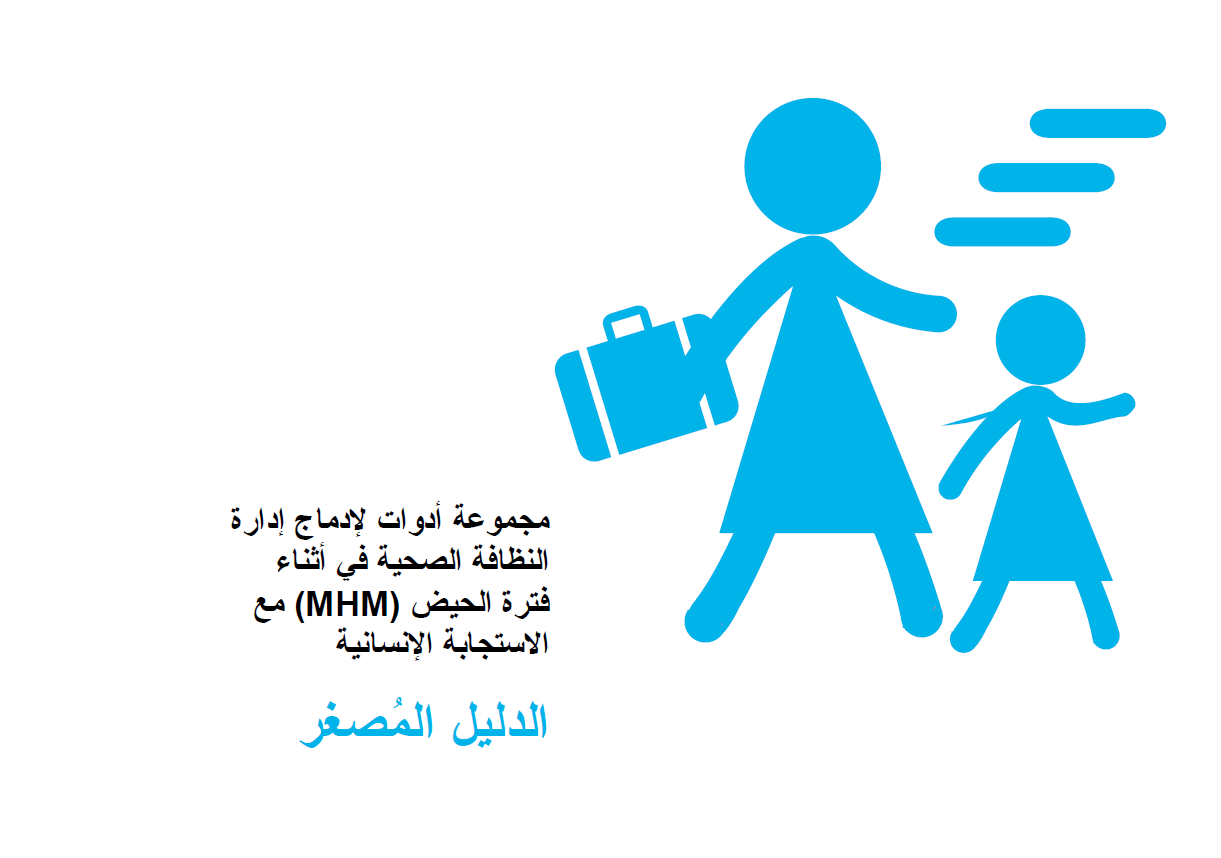Guidance on considering the needs of children in planning and implementing WASH services in emergencies.
Archives
WASH for children in emergencies

Oxfam research report: community Engagement in WASH Service Delivery in Zaatari camp

This study was commissioned by Oxfam in Jordan to map and analyse the perspectives of different stakeholders within the refugee population in Zaatari camp, as well as those within relevant organisations, regarding community engagement in WaSH services, and provide recommendations on this.
- Locations: Jordan. Organisations: OXFAM. Categories: WASH Research Documents.
WASH Accountability Resources – Ask, Listen, Communicate

This booklet contains material and resources to promote forward accountability in WASH programmes.
- Organisations: Global WASH Cluster.
MHM in Emergencies Toolkit – Mini Guide – Arabic Version

This adjoining document provides a brief summary of the key actions necessary for addressing MHM during emergencies. It serves as a quick read to gain a basic understanding of a complete MHM response. However, it is advised to review the complete guide when designing programs or developing response activities.
- Tags: Menstruation Hygiene Management. Languages: Arabic. Organisations: Columbia University and IRC (International Rescue Committee).
How to Support Survivors of GBV When a GBV Actor is Not Available in Your Area (IASC, 2015)

The “Pocket Guide” resource package V2.0 is a joint GBV Guidelines and GBV AoR resource designed to provide all humanitarian practitioners with concrete information on how to support a survivor of gender-based violence who disclosed to you in a context where there is no gender-based violence actor (including a referral pathway or GBV focal point) available in your area. The resource package uses global standards on providing basic support and information to survivors of GBV without doing further harm. We encourage adaptation of this resource to your local context with the support of a GBV specialist.
Guidelines for Integrating GBV Interventions in Humanitarian Action – Essential Actions (IASC, 2015)

This document consolidates the “essential actions and minimum commitments” tables from the comprehensive Guidelines on Integrating Gender-based Violence Interventions in Humanitarian Action (“GBV Guidelines”) and each sector-specific Thematic Area Guide (TAG) into one document that can be easily downloaded and/or printed to use as a quick reference tool during the earliest stages of acute emergency response. It is meant to support, but not replace, the comprehensive Guidelines and sector-specific TAGs. These tables provide key recommendations for each thematic area. The sector-specific minimum commitments appear in bold.
- Categories: WASH Indicators and Standards.
Guidelines for Integrating GBV Interventions in Humanitarian Action – WASH Thematic Guide (IASC, 2015)

This Thematic Area Guide (TAG) on WASH and gender-based violence is a portable tool that provides practical guidance for WASH professionals working to prevent and mitigate gender based violence in humanitarian settings.
- Organisations: IASC, IASC, and IASC. Categories: WASH Guidelines, WASH Guidelines, and WASH Guidelines.
Tiger Worm Toilet Guidelines

These Best Practice Guidelines were developed by Oxfam under UNHCR’s “Waste to Value” Project, funded by the Bill and Melinda Gates Foundation. The Guidelines are based on operational research conducted in 2016 and 2017 in Jewi Refugee Camp in Ethiopia, where the Tiger Worm Toilets remain in operation and under regular monitoring.
- Tags: Excreta / Urine ReUse, Excreta Composting, and Household Toilets. Organisations: Bill and Melinda Gates Foundation and OXFAM GB. Categories: WASH Policy Guidelines and WASH Policy Guidelines.
UNHCR WASH Equipment Specifications

This WASH Equipment Specifications Catalogue has been produced by UNHCR’s WASH and Procurement Departments to improve the acquisition and effective procurement of WASH relief items.
The catalogue includes specifications and quality requirements for standard WASH equipment items such as pumps, tapstands, water tanks and water testing equipment.
- Tags: Excreta Management, Excreta Management, Hygiene Promotion, Hygiene Promotion, Hygiene Promotion, and Water Supply. Organisations: UNHCR and UNHCR. Categories: WASH Reference Documents, WASH Reference Documents, WASH Reference Documents, WASH Reference Documents, WASH Reference Documents, WASH Reference Documents, and WASH Reference Documents.
Urban WASH Planning Guidance and Case Studies

These brief guidelines are prepared primarily for UNHCR WASH staff and partners in response to refugees living “out of formalised camps” in urban areas, though have applicability to those in camps in urban areas too.
